6 MORE Obscure 90’s Death Metal Albums That Deserve To Be Heard!
Delve further into death metal's nether regions!
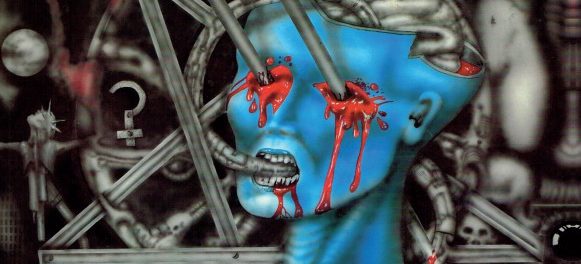
Worship Metal casts its critical eye over 6 MORE Obscure 90’s Death Metal Albums That Deserve To Be Heard!
We’ve ignored the big guns of the genre, and instead focused on those albums that have a tendency to slip under the radar.
Continuing with:
Dark Heresy – Abstract Principles Taken to Their Logical Extremes
Where: United Kingdom
When: 1995
Why: Like the death metal version of fellow countrymen Sabbat, these anti-Christian pagans from the UK were a complete anomaly in their respective genre but, sadly, Dark Heresy’s lasting legacy boils down to just this one album.
But, what an album it is!
With concepts as complex as their compositions, these avant-garde, progressive death metallers seemed to throw every single idea into the mix, culminating in a bewildering experience that managed to be both beautiful and brutal in the same breath.
Basically, Dark Heresy sounded like an unholy union between Carcass and Testimony Of The Ancients-era Pestilence (by way of 70’s jazz-fusion perfectionists The Mahavishnu Orchestra!), with their approach to songwriting proving difficult to pin down while ensuring that Abstract Principles Taken To Their Logical Extremes remains an utterly unique experience!
Gutted – Bleed For Us To Live
Where: USA
When: 1994
Why: Gutted excelled at their relatively unique blend of classic death metal with thrash and death/doom elements and with Bleed For Us To Live they delivered a true underground classic – one which provided just as many neck-wrecking grooves as their Swedish contemporaries Entombed, Grave etc.
The vocals are a revelation and some of the best in business, with range and clarity adding layers to what is a forceful showing of guttural power. Fortunately, the music matches this quality and intensity and remains both brutal yet ridiculously catchy.
The epitome of the sheer strength and breadth of 90’s American death metal, Bleed For Us To Live remains an absolute classic from an era that seemed to vomit forth albums of this calibre on a weekly basis!
Jumpin’ Jesus – The Art Of Crucifying
Where: Germany
When: 1991
Why: Jumpin’ what now?! Jumpin’ fuckin’ Jesus that’s who! And no, we’re not talking about the great bearded one fannying around on a pogo stick, this is Jumpin’ Jesus from Germany…..and they kicked ass!
Despite saddling themselves with a god-awful (pun intended) band name, Jumpin’ Jesus played some seriously skilled and brutally complex death metal. With a sound that wasn’t too far removed from that coming out of Florida’s Morrisound Studios there was enough (typically German) eccentricity to stand Jumpin’ Jesus out from the pack.
Unafraid to throw some curveballs into the mix and simply be plain fuckin’ weird at times, it’s the freakish time signatures and odd noises that made The Art Of Crucifying so intriguing. Highly technical and with a distinct dual guitar attack, Mike Gage and Oliver Ulrich were a seriously unhinged pairing who unleashed a torrent of incredibly wild riffs and solos on this, Jumpin’ Jesus’ only album.
Cohesive structure be damned, this shit was intense, it was untamed and it was (sadly) one of a kind.
Masacre – Reqviem
Where: Columbia
When: 1991
Why: When you open your album with the kind of acoustic folk whimsy expected from Simon and Garfunkel, you’d be forgiven for thinking Columbia’s Masacre weren’t up to the task but Reqviem is actually an extremely dark, violence-fuelled mix of predominantly mid-tempo death metal played by a band who are still flying the flag for death nearly 30 years after originally forming!
With doom metal casting its spell over many of Reqviem‘s slow, relentlessly heavy riffs, the overall atmosphere of intolerable pain is palpable. Of course, Masacre still unleashed blasts of typically ferocious death metal fervour – particularly on the feral “Escoria” – with Trapeador’s vocals careening from inhuman growls to an unhinged banshee wail but it’s on the epic likes of “Cortejo Fúnebre” that Masacre were at their finest; combining grinding fury with doom metal’s often languid pace and skin-crawling atmospherics.
So what if the guitar tone was shite, the compositions on Reqviem were excellent; uniformly abrasive and adept enough to make up for any shortcomings.
Resurrection – Embalmed Existence
Where: USA
When: 1993
Why: Florida’s Resurrection may have arrived a little late to the Floridian death metal party – and you’re really gonna be up against it when the likes of Deicide, Obituary, Morbid Angel, Atheist and Death are your nearest competition – but their 1993 debut, Embalmed Existence, should still be considered more than just a footnote in the annals of early 90’s death metal.
Fully embracing the progressive nature of the majority of their peers, Resurrection’s skill lay in tempering the blast beats with slamming grooves, varied pace and a penchant for otherworldly and eerie experimentation.
The over use of soundbites is a distraction but the music on display is nothing less than impressive throughout, with a strong sense of Obituary’s circa Cause Of Death informing much of the work found on Embalmed Existence. Not that Resurrection were copying John Tardy and the boys wholesale. Instead, their series of slowly decaying anthems and, sometimes, measured and sedate pace, draws comparison with Obituary’s sophomore album while affording them their own cloying sense of overriding menace.
Sorcery – Bloodchilling Tales
Where: Sweden
When: 1993
Why: Heavy on atmosphere, the chilling (some might say ‘bloodchiling’) sounds found on Sorcery‘s debut album should have pegged them as serious contenders. Instead, they fell sadly by the wayside but that’s no reason for dismissing them now!
There was nothing generic or ‘formula’ about Sorcery’s distinct death metal, with the band conjuring magic from their classic horror influenced samples and interludes, ultimately creating a ghoulish blast of Hammer Horror death metal in the process.
That’s not to say that the fundamentals weren’t in place – Bloodchiling Tales was produced by the legendary Tomas Skogsberg at Sunlight Studios and that “buzzsaw” guitar tone is obviously ever present – but Sorcery were doing something different, challenging the status quo with rhythmic gutturals that grooved with the riffs, subtly using keyboards to create a heckle-raising atmosphere and delivering variances in tempo which occasionally bordered on death/doom.
That was just 6 more obscure 90’s death metal albums that we feel deserve to be heard….pop your suggestions regarding some more cult / obscure death metal gems in the comments section below.
Be sure to check out the first in this series – 6 Obscure 90’s Death Metal Albums That Deserve To Be Heard!

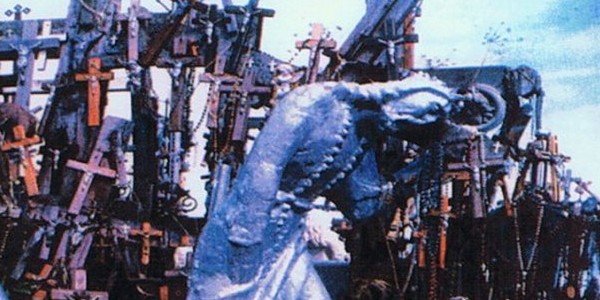
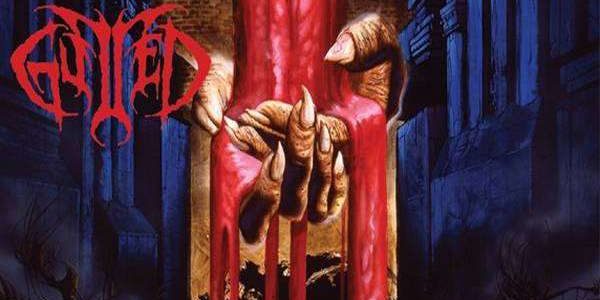
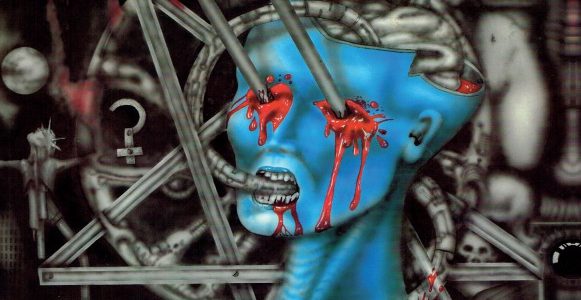
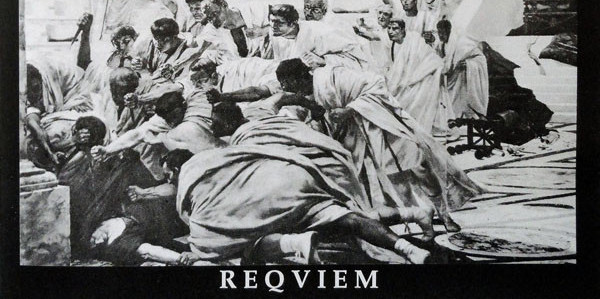
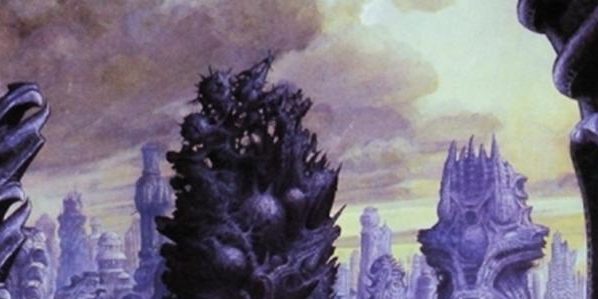
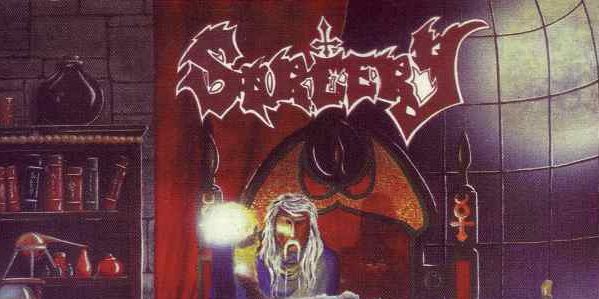








Really enjoying checking out these 90`s bands I`d not heard of. Some other suggestions;
Excruciate – Passage of Life
Convulse – World Without God
Epitaph – Seeming Salvation
Loudblast – Disincarnate